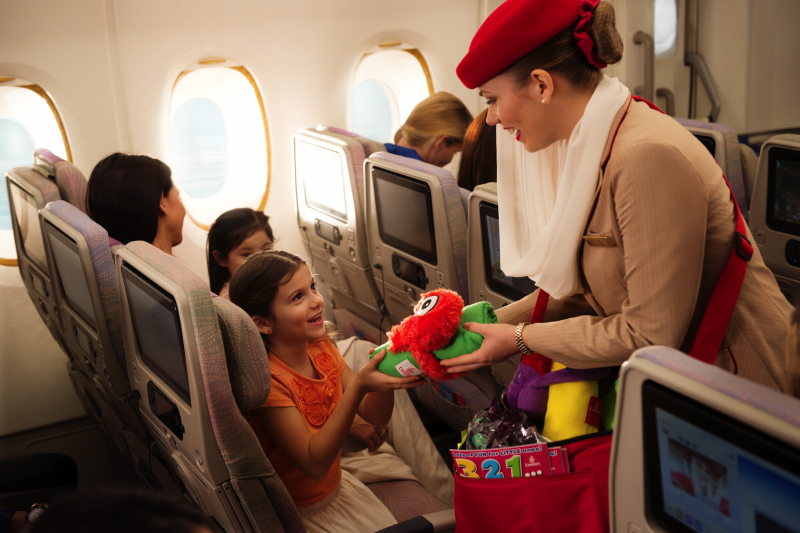Achieving your dream to become cabin crew can sometimes feel really confusing. We know the competition is fierce but why do some people get to realise their dream so easily while others have to try time and time again before receiving the ‘golden call’? If you’ve ever been rejected, sometimes at the earliest stages in the recruitment process, it can be a really confusing and disorientating experience.
You’ve no doubt spent months preparing your application, have professional photos ready and are fully prepared for the recruitment event – so why didn’t the recruiters even give you a chance? The problem is, you’ll probably never find out for sure – the chances of getting personal feedback is pretty much non-existent.
It’s natural to feel really dejected and blame yourself for failing. The best you can do is to review your performance and try to improve yourself for your next application. But what if you’re sure your application is already fantastic? You’ve got loads of experience, a friendly personality and present yourself in an exemplary way.
Unfortunately, the cabin crew recruitment process doesn’t always make sense. There are so many factors going on behind the scenes that will never, ever be shared with you. Some of these factors are obvious – others are kept as secret as possible. So we’ve spoken with several insiders at major international airlines to find out how they choose their new cabin crew – and why failure isn’t always your fault.
Here’s the run down of the top reasons you’ve probably been rejected without a second thought. With some, you can do things to improve for the future but others are completely out of your control:
1. You didn’t focus on the correct skills in your application
It doesn’t matter if your resume is a single sheet of paper or an epic three-page masterpiece. If you haven’t focused on the exact skills that airlines are looking for in their cabin crew then your chances of being selected are significantly lessened.
In the past, the quality of your resume didn’t matter as much but today, airline recruiters use sophisticated computer systems to scan and analyse resumes – known as an Applicant Tracking System (ATS). If your resume doesn’t highlight the predefined skills and qualities the airline is looking for then you’ll be immediately rejected.
We’ve written a lot about this subject in the past and would rate the quality of your resume as one of the most important factors in achieving your dream. To find out more, we’d suggest taking a look at these two articles:
The Best Qualities to Highlight in Your Cabin Crew Application Resume
The Step by Step Guide to Creating Your Perfect Cabin Crew Resume
There is one problem, however. Normally, it doesn’t matter what industry you’ve had prior experience in so long as you prove you possess the qualities and skills that the airline is looking for. But sometimes it’s not quite as simple as that. Some recruiters programme their ATS system to look for very specific skills without telling applicants on the job advert.
Most commonly this is used to select candidates with previous cabin crew experience or five-star hotel/restaurant experience. The airline will never tell you and you’ll never get feedback – You’ll just receive a simple ‘regret email’. How will you know if your resume isn’t good enough? Try several different airlines – it doesn’t matter if you want to work for that airline or not. If you get rejected then you know your resume will need some improvement.
2. Your performance at the Assessment Day didn’t focus on the airline’s needs
Okay, so your resume is good enough and you’ve been shortlisted to attend an Assessment Day. Everything seems to be going really well but then you’re rejected after a couple of rounds. What’s gone wrong?
Assessment Day’s can be really intense but you need to go into it with an understanding of how they work and what the airline recruiters are looking for. It’s vitally important to keep a check of your behaviour the entire time. Constantly assess how you are acting and remain laser focused on the behaviours and qualities that the airline is looking for.
So where are you most likely to fail?
- General behaviour during periods of waiting
- Communication skills with recruiters and fellow candidates
- Aggressiveness or shyness during team working tasks
The last one can be a really difficult one to get right. Recruiters use team work tasks to put pressure on candidates and see how they react in a high-stress situation. It’s incredibly important to understand what the recruiter is looking for so you can perform to your best.
Check out this article for the full lowdown on being successful at an Assessment Day: How to Ace the Group Exercise at Your Cabin Crew Assessment Day 2017 – In Four Easy Steps
But even behaving in a perfect way won’t guarantee your success. Here’s where factors beyond your control come into play.
3. Sorry boys, the airline isn’t recruiting males at the moment
Yes, it might be 2017 but this really does still happen. Some airlines might specify that they are only looking for female candidates. It might be sexist but at least, if you’re a guy, you know you don’t stand a chance. Other airlines aren’t quite so open.
Now, this is incredibly unlikely to happen at a European, North American or Australian airline. Tough anti-discrimination laws mean this type of recruitment practice is a thing of the past – even if an airline only wanted to recruit females, the chances of getting caught and receiving a huge fine are too great a risk.
But such rules don’t affect the biggest and most popular Middle East airlines like Emirates, Etihad and Qatar Airways. Last summer, Etihad Airways only recruited Arabic-speaking men. A six-month ban on recruiting any other males was imposed on the recruitment team by senior managers
Unfortunately, Etihad didn’t tell male candidates about this rule. On the face of it, the recruitment process is made to look open and fair. Yet the experience for some candidates is anything but fair.
4. You don’t have the specific look
Cabin crew come in many different shapes and sizes. It’s a common myth that you have to be ‘beautiful’ or ‘handsome’ to get the job but this simply isn’t true. Airline’s value diversity and what you offer an airline goes way beyond beauty. But there is one exception…
Many international airlines have special ‘promotions’ teams – these are specially selected cabin crew who represent the airline at high profile publicity events. They appear in advertising, at sports competitions and big corporate events. This is where beauty and a specific ‘look’ makes a big difference. It’s also unusual to find men playing any part in these teams.
In the few months before Emirates halted cabin crew recruitment late last year, the airline ordered its recruiters to only shortlist candidates who might be suitable to join the promotions team. Again, Emirates didn’t tell applicants about this rule but it had a major impact on who would be shortlisted.
In fairness, this doesn’t happen often but it’s nonetheless something to take into consideration.
5. The recruiter just doesn’t like you
Airline recruiters are only human – just like you and me, they make snap decisions about a candidate within a couple of seconds of meeting them. Despite your best efforts, unfortunately, you’re never going to impress everyone and sometimes a recruiter will immediately reject you on a whim.
It’s definitely unfair but it does happen. Luckily, this is where ATS systems and video interviews are actually improving the candidate experience. HR managers know their recruiters are imperfect and unfairly reject really good candidates who could prove to be a fantastic asset to the airline. These new technologies remove the recruiter from the process, ensuring initial selection is fair and based on merit.
Now, a really good airline will also put in measures to make their Assessment Day as fair as possible as well. Using multiple recruiters and assessors at different stages so that one recruiter isn’t allowed to completely sway the decision.
6. You’re a little too confident
How could you be too confident, I hear you ask. Surely an airline wants its cabin crew to have heaps of confidence and personality? Well, that’s true to a certain extent but it doesn’t always work out that way. Different airlines have different corporate cultures and just because your personality will fit right in at one airline doesn’t mean it will fit at every airline.
And that’s not the only challenge. Some airlines encourage individual personalities to shine through. Others prefer a rigid following of company Standard Operating Procedures – Qatar Airways is a prime example. Show too much personality and the recruiter will wonder if you might cause problems a few months down the line.
It’s not you, it’s them – but that probably won’t make the rejection any easier. But think carefully about how much you’re willing to change who you are. Being able to adapt and improve is one thing. Completely changing your personality is quite another.
Bottom Line
If you’ve ever been rejected by an airline the best thing to do is to start by assessing your past performance. There’s always room for improvement and ways to better yourself before applying again. But be aware that you’re not always to blame.
Sometimes, a huge amount of luck and being in the right place, at the right time is all you need to be successful.




